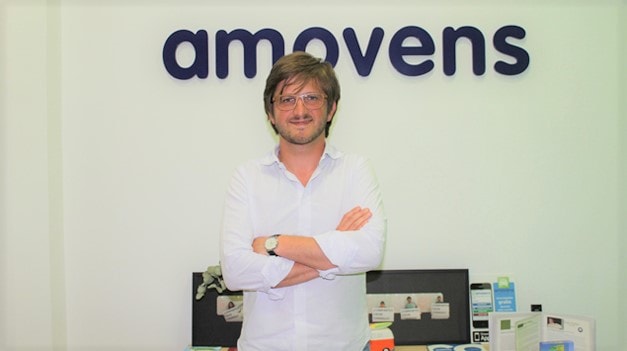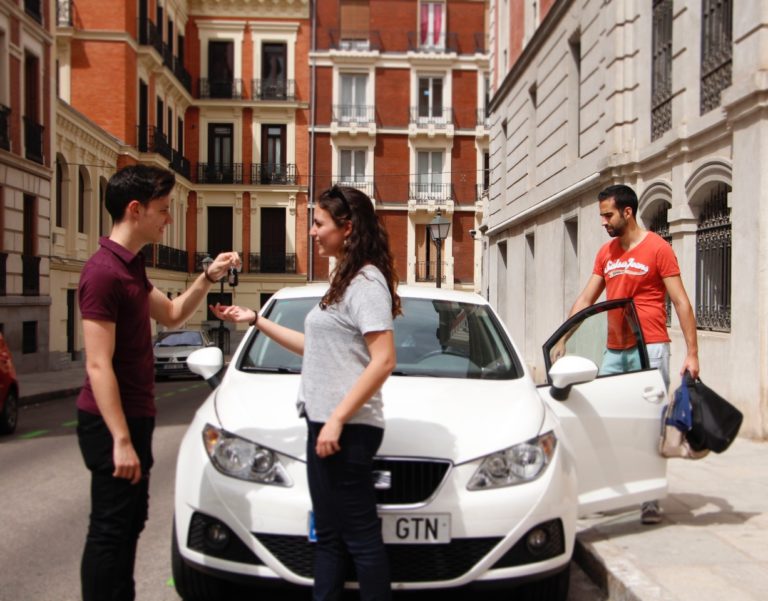The drastic scarcity of world resources forces us to rethink the usefulness of consumption-based models. Circular economy provides one answer as more people offer their goods for rent. In addition, sharing services allow us to tackle global challenges including climate change. Though the governments of countries across the globe make their own contributions by building up sustainable transportation systems, car sharing services have become a viable option for those who prefer to leave their car in a garage or at a parking lot.
We decided to try to unfold the major advantages of the car sharing industry by interviewing Diego Hidalgo Demeusois, founder of Amovens — a ride-sharing company that has become popular across Europe.
What motivated you to start your own business?
Diego Hidalgo Demeusois: Before founding Amovens, I spent some time working at the Clinton Foundation back in 2007, which led an initiative to fight climate change; that is when I first sensed the urgency to find mechanisms to address this issue collectively and effectively, beyond words and institutional declarations. There, I also had a chance to be in contact with social entrepreneurs, who aimed to contribute to key social issues in the framework of private companies. Previous to that, at the University of Cambridge, I had carried out some research on online social networks at the very beginning of the Facebook era.
Retrospectively, I believe these were all key factors that led me to found Amovens a little later, whose aim was to bring people together in order to empower them to get around in a much more efficient way. Urging people to use their car less and use more environmental-friendly transportation is useless if they are not provided with competitive alternatives. And I think digital technologies are best used when they unite people and generate actual human contact, with the final objective of reducing CO2 emissions.

Can you tell us more about the company profile?
D.H.D. : Amovens started as an online ridesharing platform, that allowed people to connect in order to travel together, most of the time between cities. We also implemented solutions for companies, universities or local authorities interested in promoting carpooling on a daily basis. But the key development happened a couple of years later, when we added a peer-to-peer car-rental service to the platform, and later on, a collaborative leasing service, which allows people to lease a car and rent it out when they don’t use it.
Where do you see your company in the short-term perspective?
D.H.D. : After merging with Danish company GoMore in 2015, we’ve developed a strong user base in different European countries, and are working on building a pan-European carsharing community with millions of users across many countries. Car ownership is evolving quickly, but many people still want to own their own cars or cannot do otherwise. Beside fleet carsharing companies, we believe that a lot can be done to help privately-owned cars to be shared as much as possible, and in several ways. Amovens offers a unique point of entry for that.

What makes your product different?
D.H.D. : It’s really the fact that we combine three different services, all based on the same community and the idea that cars are better used when they are shared. Car owners can rely on one same platform to open their cars to others and spend less on them, which generally also leads them to use their own car less. Those who do not own cars can also use Amovens in almost all situations in which they might need a car, whether it’s for a ride to go to another city, going on a weekend trip with their family renting a car from their neighbour, or getting a car for a few months or years that they can easily share (and pay) with others.
How did your customer base grow during the last years?
D.H.D. : We have about 1.5 million active users in Spain, and 2.5 in the whole of Europe. We have more than doubled size in the past two years.
Editor’s Picks – Related Articles:
“Scoop Carpooling in Seattle. Helping citizens during the “Seattle Squeeze”
“In his own words: Turo CEO, Andre Haddad, on the UK launch of the ‘Airbnb for cars’ ”
What are your thoughts about the SDGs (Sustainable Development Goals)? How do you think your company can give a positive contribution in that sense?
D.H.D. : Climate change and sustainable development need to be addressed at various levels: both institutionally and practically. We need to create both top-down and bottom-up dynamics to shake States, societies, and individuals, beyond declarations and narrow individuals actions, which weigh very little if not done in coordination. I believe Amovens’s contribution fits in the middle and has the advantage of being very concrete and practical. What is certain is that we need to do more, as the every year’s IPCC data and conclusions points out, in an increasingly dramatic way.

What are your opinions regarding the future of online car sharing systems?
D.H.D. : As many other industries, cars altogether are going through a real revolution. Car sharing systems are a big part of that movement, as they reflect the crucial shift of attitude with respect to car ownership and use. As in other industries, people are more interested in making the most efficient use of their car rather than owning one as status symbol. Having said that, carsharing systems refer to a very diverse reality, and while carsharing fleets are growing and essentially impacting urban transportation, peer-to-peer platforms are very complementary and more versatile in some ways. Amovens, with its unique set of services and very rapid growth, is a key player of this revolution.











